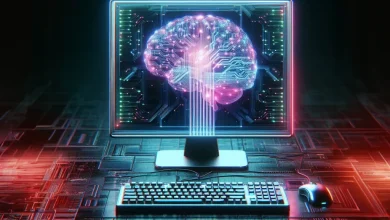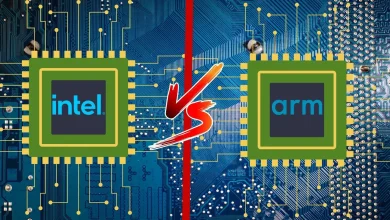
How Will Quantum Computing Change Modern Technology?
Explore how quantum computing is set to transform industries like AI, cybersecurity, and drug development in the next digital revolution.
The quantum world of probability and entanglement might be hard to grasp but it’s about to become very practical in our lives. Quantum computing is transitioning from a theory dream into a practical technology that would replace several of them in a relatively short period. But, in what way exactly, will it affect the tech world we know today?
Unlike classical computers, which use bits, quantum computing operates on qubits, which can be in a multiplicity of states acting as qubit at once. This enables them to address problems that will be centuries for traditional machines to crack; like simulating molecules or optimizing the world logistics in real time.
Reinventing Artificial Intelligence and Machine Learning
The most eagerly awaited application for quantum computing is for artificial intelligence. Quantum algorithms make it possible to process and analyse complex datasets significantly faster than today’s models, causing the mathematical operations behind machine learning training – and everything built on it – to become exponentially more efficient. This may result in smarter, adaptive AI across the board from finance to health and manufacturing.
AI models will not depend only on brute forced processing power. Rather, quantum computing could enable AI to consider more options concurrently, and propel innovation in autonomous systems, predictive analytics and language models at a rate unlike what’s been observed so far.

Shaping the Future of Security and Encryption
Another critical frontier is cybersecurity. The existing encryptions are based on mathematical issues which take significant time to resolve even for the classical computers. But future quantum computing may destroy many of current encryption standards, and thus, the world needs to invent quantum-resistant protocols as soon as possible.
Fortunately, the same power that poses a danger to the old form of encryption, can also be used to develop new means of secure communication. Through quantum key distribution rendered possible by quantum computing, theoretically uncrackable encryption is promised – for secure digital transactions, defense communications, and even more.

Solving Real-World Problems Faster Than Ever
Quantum computing does not belong only to tech – it has biggest impact in the practice of science. Molecule simulation and drug discovery are the things pharma companies are looking at in it. Instead of spending years to test drug interactions, researchers can use quantum computing to simulate and come up with viable compounds in a fraction of a time.
Logistics, finance, energy etc. are similarly capable of benefiting from advanced optimization. Issues such as traffic control, stock portfolio balance, and distribution of energy have millions of variables involved in them. Utilizing quantum computing allows you to arrive at the best solutions faster, more accurately and much more economically.
Maybe quantum computing is still in its infancy but its possibilities are infinite. From re-defining how we view AI to re-writing the norms of cybersecurity, the wave effects of the technology will affect all forms of industry. There are still lots of challenges ahead of us—error correction and hardware stability, but the breakthroughs recorded point to ‘not if, but when’ as the correct answer. The time has come for developers, the researchers and the policymakers to prepare. Because once quantum computing becomes mainstream, the world won’t just change pace, it will change its very nature.



